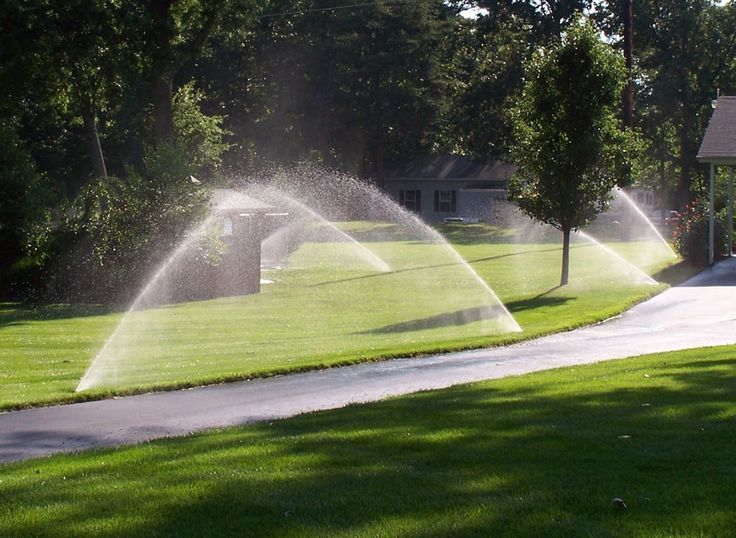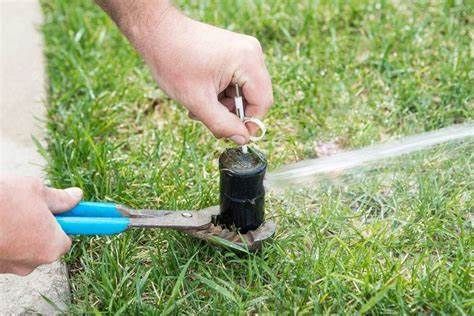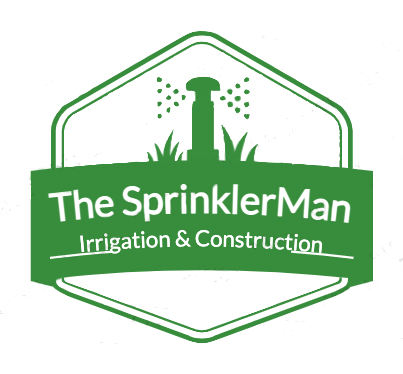March 18, 2025
Sprinkler Spruce-Up: Essential Tips for a Lush, Water-Efficient Lawn

As the days grow longer and warmer, is your lawn ready for the season? Is your lawn ready for the warmer weather and longer days ahead?A few simple upgrades and maintenance checks can significantly boost your watering efficiency, conserve water, and extend the life of your sprinkler system. Here’s how you can make the most of your irrigation setup.
Upgrade Your Sprinkler Heads for Maximum Efficiency
Modern sprinkler heads come equipped with check valves and pressure reducers, ensuring that water is distributed evenly and without waste. Consider replacing older sprinkler heads with these newer models to improve water conservation and coverage.
Sneaky Leaks: The Silent Water Wasters
Even if your sprinkler system appears to be working fine, hidden leaks around seals and underground piping can waste significant amounts of water. Signs of leaks include soggy patches, uneven water distribution, or unusually high water bills. Upgrading to efficient sprinkler heads and routinely checking for leaks can save both water and money.
Keep Your Rotor Heads Rotating Smoothly
Rotor heads rely on internal gears to control their rotation speed and watering radius. Over time, these gears can wear out, leading to uneven watering or dry patches.
- Signs of a failing rotor head: Slow or erratic rotation, water pooling around the base.
- Solution: Regular maintenance, flushing debris from nozzles, and replacing worn-out rotor heads as needed.
New Check Valves to Prevent Wasteful Leakage
Sprinkler heads without check valves often leak water after the system shuts off, especially if they are at lower elevations. Installing new heads with built-in check valves prevents this waste and keeps water where it belongs—in your irrigation lines.
Advancements in Sprinkler Heads: Rotors, Sprays, and Mid-Range
Advancements in sprinkler technology make it easier than ever to customize your watering system. Here’s a breakdown of the best options:
- Rotors: New rotor heads often incorporate advanced features like adjustable rotation angles and radius control, allowing for precise watering customization. They may also have improved gear systems for smoother and more reliable operation, ensuring consistent water distribution. Some even include innovative technologies like rain sensors and soil moisture sensors for automatic adjustments based on weather conditions and soil needs.
- Spray Heads: Spray heads have also seen advancements with features like adjustable spray patterns and flow rates, allowing for tailored watering to specific areas. They may also include check valves to prevent water waste and pressure regulation for optimal performance. Rotary spray nozzles, a popular choice for retrofitting traditional spray heads, offer adjustable arcs and radii for customizable watering zones, ensuring efficient water distribution.
- Mid-Range: These versatile sprinkler heads combine the benefits of rotors and sprays, offering adjustable patterns and radius control for flexible watering options. They may also include features like pressure regulation and check valves for efficient water use.
Zone Valves: The Key to an Efficient System
Zone valves are critical components of an irrigation system, controlling the flow of water to different zones in your yard. Upgrading to advanced zone valves can significantly improve the efficiency and reliability of your irrigation system.
Common Issues with Old Zone Valves:
- Faulty wiring: Over time, the wiring connecting zone valves to the controller can become damaged or corroded, leading to intermittent or complete failure of the valve.
- Leaking valves: Worn-out or improperly installed zone valves can develop leaks, allowing water to flow even when the valve is closed. This can waste water and increase your water bill.
- Restricted water flow: If a zone valve is not fully opening or closing, it can restrict water flow to the affected zone, leading to dry spots and uneven watering.
Benefits of Upgrading Zone Valves:
- Better water flow control to prevent over- or under-watering.
- Enhanced durability, reducing the need for frequent repairs.
- Smart irrigation compatibility for remote monitoring and automation.
Don’t Forget Seasonal Maintenance
New England’s unpredictable rainfall patterns can make irrigation tricky, but routine maintenance ensures efficiency:
- Spring Start-Up: Check for leaks, test pressure, and adjust sprinkler heads.
- Mid-Season Check: Ensure even water distribution and clear out any clogged nozzles.
- Winterization: Blow out your system to prevent pipe damage from freezing temperatures.
Is Your Sprinkler System Up to Date?
Want to upgrade your system for maximum efficiency? Send us photos or schedule a free sprinkler assessment today! The SprinklerMan is here to help homeowners in the area get the most out of their irrigation systems while conserving water and saving money.


